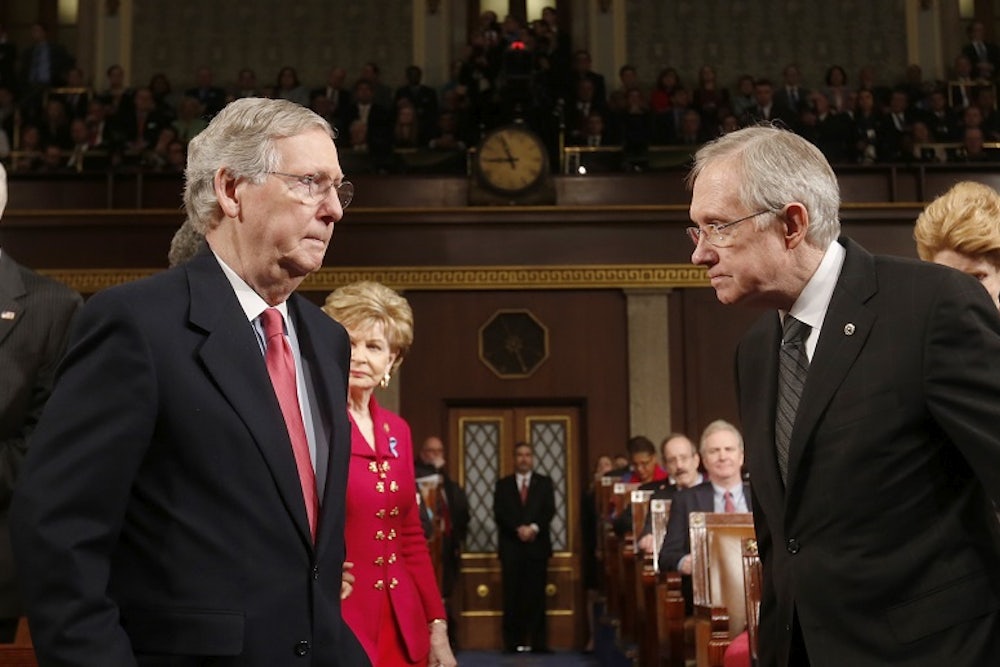Assuming Democrats and Republicans agree on a bill to fund the government by Thursday, House Speaker John Boehner has told his members that they will recess after that. Despite Senate Majority Leader Harry Reid’s annual threats to keep the upper chamber in session through the holidays, the Senate is scheduled to do the same. But it shouldn’t. Instead, Reid should keep the Senate in session until Republicans take over next year in order to confirm as many executive branch and judicial nominees as possible.
Consider the actions of Senate Republicans during the past six years. Led by Majority Leader-Elect Mitch McConnell, the GOP used the filibuster to block President Barack Obama’s nominations for key executive branch and judicial positions. In some cases—such as the nomination for the head of the Consumer Financial Protection Bureau—they refused to confirm any nominee unless Democrats made specific changes to the program. In other words, they used the nomination process as leverage to extract policy changes from Democrats. They often refused to confirm any judicial branch nominees. Sick of these tactics, Democrats changed the rules of the Senate in November 2013 so that all executive branch and non-Supreme Court judicial nominees could not be filibustered. In the 13 months since, Senate Democrats have spent much of their time confirming nominees.
That will end in January as Republicans are expected to clog up—if not seal off altogether—the nominations process. “The difference between 50 Democratic senators (plus a tie-breaking vote by Joe Biden) and 49 Democratic Senators is the difference between two full years of filling the judiciary and two years of likely gridlock,” New York’s Jonathan Chait wrote before the midterms.
Relations between the parties have only worsened since then with Obama's executive action on immigration. In a pre-buttal to that move, Senator Ted Cruz proposed that Congress “not confirm a single nominee—executive or judicial—outside of vital national security positions, so long as the illegal amnesty persists.” It’s not clear whether Republicans will take up that strategy, or how many nominees are “of vital national security positions,” but pressure from the Texas conservative will not make the nomination process any smoother.
That’s what makes Reid’s decision about whether or not to keep the Senate in session so important. Any time spent in recess between now and when the 114th Congress begins on January 3 is time that could have been used to confirm nominees—nominees that won’t be confirmed otherwise. Lawmakers will likely object to working through the holidays. If Reid must give them a couple of days off around Christmas and New Year’s, to appease them, he should do so. But it is too important for the functioning of the executive branch and the makeup of the courts to spend the entire time on holiday.
